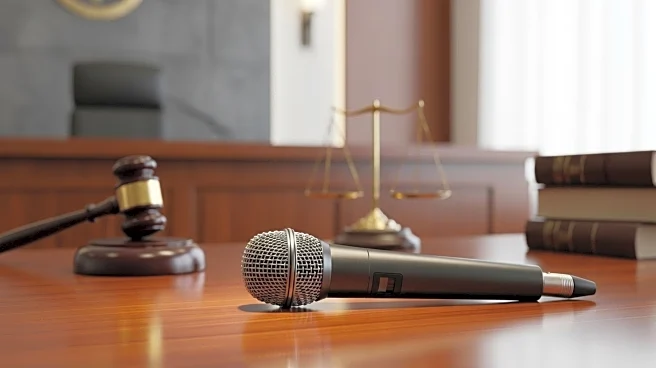What is the story about?
What's Happening?
A federal judge in New York has dismissed a defamation and harassment lawsuit filed by Canadian rapper Drake against Kendrick Lamar. The lawsuit was centered around Lamar's diss track 'Not Like Us,' which allegedly accused Drake of pedophilia. The judge, Jeannette A. Vargas, ruled that the lyrics of the song were 'nonactionable opinion,' meaning they could not be considered defamatory. The track, released in May 2024, was part of a series of exchanges between the two artists, characterized by intense rhetoric and accusations. The court found that the song's context did not support a factual interpretation of the allegations against Drake.
Why It's Important?
The dismissal of this lawsuit is significant in the music industry, particularly within the rap genre, where diss tracks are a common form of artistic expression. The ruling underscores the legal protection of artistic speech, even when it involves controversial or provocative content. This decision may influence future legal battles involving artists and their creative works, reinforcing the boundary between opinion and defamation. For Drake, the ruling closes a chapter in a high-profile feud, potentially impacting his public image and career. For Kendrick Lamar, it affirms his artistic freedom and may embolden other artists to push creative boundaries without fear of legal repercussions.
What's Next?
With the lawsuit dismissed, both artists may focus on their music careers and upcoming projects. The ruling could lead to increased scrutiny of diss tracks and their impact on public perception and artist relationships. Industry stakeholders, including record labels and legal advisors, might reassess strategies for handling disputes involving artistic content. Fans and critics will likely continue to debate the implications of the feud and its resolution, influencing the cultural discourse around artistic expression and legal boundaries.
Beyond the Headlines
The case highlights the complex interplay between art, law, and public perception. It raises questions about the ethical responsibilities of artists when addressing sensitive topics in their work. The ruling may prompt discussions on the limits of free speech in art and the role of the judiciary in interpreting artistic intent. Long-term, this case could contribute to evolving standards for evaluating artistic content in legal contexts, shaping the future of creative expression in the music industry.














